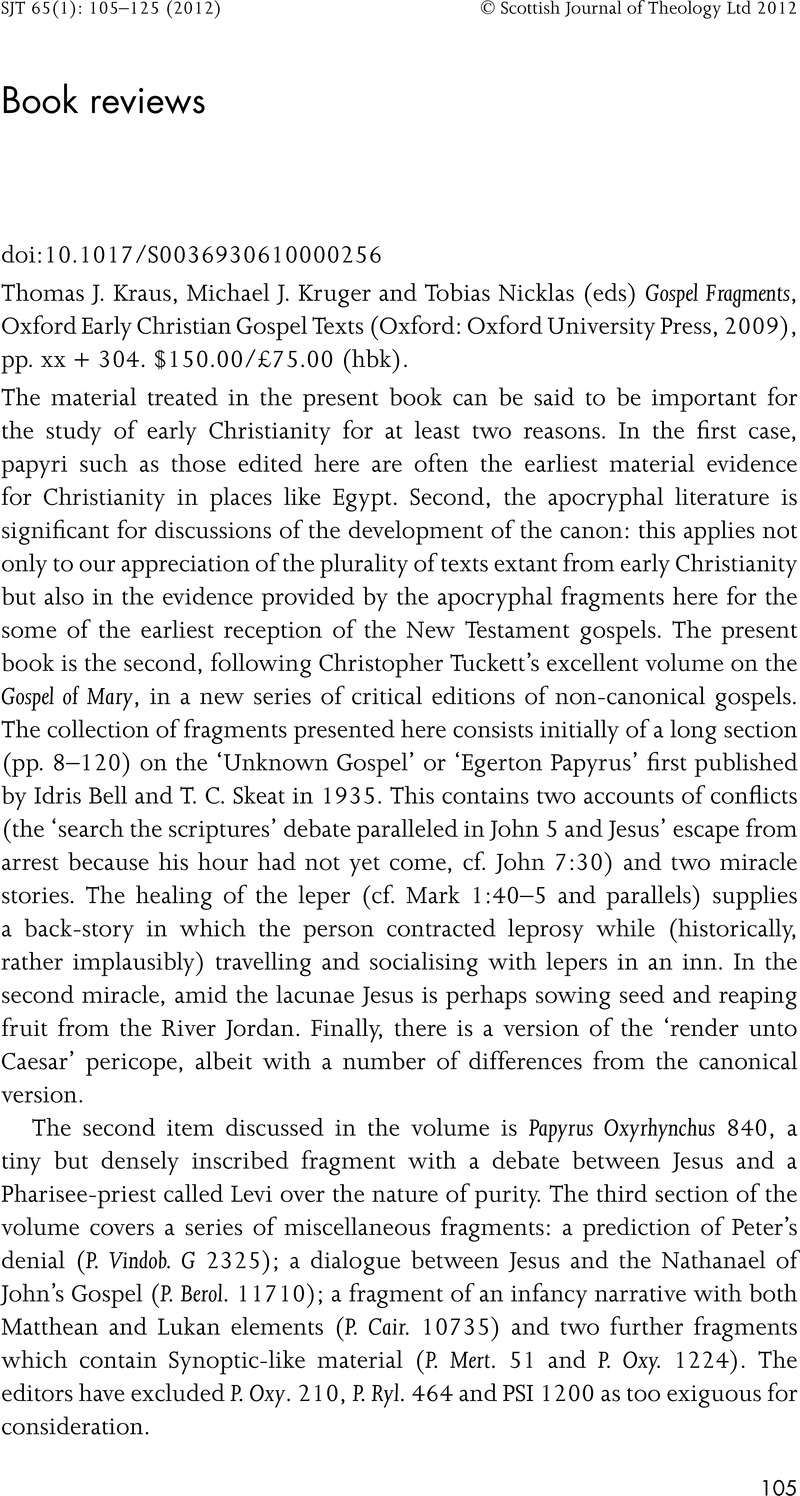No CrossRef data available.
Published online by Cambridge University Press: 06 January 2012

1 The Greek word eperōtēma has acquired an extra mu (p. 66: fr. 2 verso, l. 5); autōn (p. 76: fr. 2 recto, l. 16) has a smooth breathing instead of a circumflex accent on the omega.
2 The word epetrepsen (p. 170: recto, l. 12) has a superfluous sigma after the psi: this error was already present in the edition in Kruger's Gospel of the Savior.
3 P. Berol. 11710 has the word hēliō printed correctly with an iota subscript in the main text, but the iota subscript is replaced by a circumflex accent in the apparatus. There is also the oddity of translating the Coptic (p)noute as ‘great God’; the ‘great’ element is superfluous here.
4 In P. Cair. 10735 (p. 246: verso, l. 3), autē should be in the nominative, not the dative case, as it is clearly the subject of the ‘conceiving’. Two rogue instances of ‘(’ have appeared in ll. 6 and 9 as well.
5 In P. Mert. 51 (p. 256: recto, l. 1), telō[nai] has a smooth breathing, again rather than an accent over the omega. In l. 3, homologontes should read homologountes. On p. 258 (verso, l. 4), there is no underdotting on the plain transcription, but then a dot does appear in the restored version. In the footnote, the translation of the German ‘radikal’ is misprinted as ‘racially’ rather than as ‘radically’.
6 In the restored version (p. 274: fr. 2 recto, l. 3), the first humōn again has a smooth breathing rather than an accent.